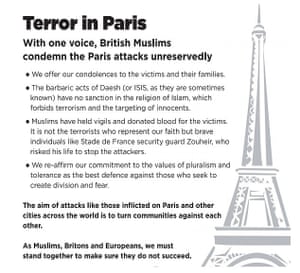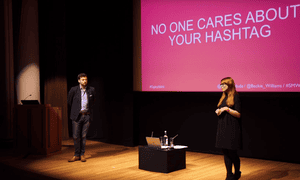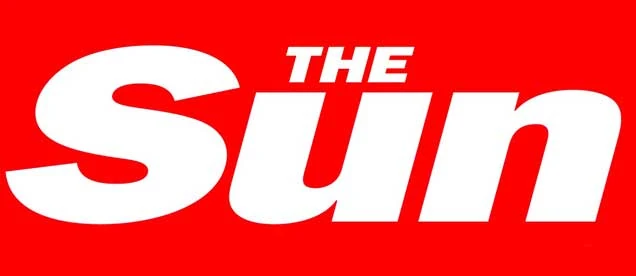Is our news influenced by American cultural imperialism? What examples can you think of?
Our news isn't influenced by American culture imperialism because American news is simply news for entertainment. It's more prominent for publishing stories on Hollywood culture and from a British perspective this is not valued. British news institutions do publish some articles associated with celebrities but primarily all the news is focussed on war and politics.
Has the increased globalisation of news improved the audience experience? How? Why?
Yes, this is because everyone can share the same experience of news at the same time, through live pictures and streaming which could be from the other side of the world. This increases audiences enjoyment. However, the globalisation of news has affected small institutions; for example the Ealing Gazette isn't valued as big media giants have dominated, which leaves local newspapers to produce poor quality news, despite producing loads of articles.
Has globalisation benefited or damaged major news institutions? How? Why?
Globalisation has benefited major institutions as consumers don't have to physically buy newspapers, as newspaper websites online provide immediate consumption, such as the Mail Online. Also, institutions save money as loads of journalists aren't required as citizen journalism derives the content published online by big institutions. However, the downside is that it is hard to verify news from citizen journalism as it may not be completely accurate.
Also, smaller news institutions are destroyed through the advances in technology, which mean audiences use social media sites to access news, such as Twitter and Facebook. Also,globalisation can be damaging for smaller news institutions, which produce local papers. For instance, take the Ealing Gazette, which is owned by Trinity Mirror, the largest British newspaper, which is currently suffering against other media institutions, such as BBC.
Monday 23 November 2015
Saturday 21 November 2015
Weekly New/Digital Media homework Week 11
WEEK 11

- Council places advert in Daily Telegraph and Mail Online condemning the terrorist attacks ‘unreservedly’
- Hundreds of British Muslims have taken out an advert to highlight their “united condemnation” of terrorism after the attacks in Paris.
- The advert, issued by the Muslim Council of Britain (MCB) and endorsed by more than 300 of the body’s affiliates, features an image of the Eiffel Tower
- Harun Khan, deputy secretary general of the MCB, said: “The reaction has been hugely positive. Others have picked up on the hard copy and have re-circulated it. It has been a really good message to us.
- The advert was also a reaction to examples of anti-Muslim behaviour which have surfaced since the attacks. On Monday, a 43-year-old woman was arrested by Thames Valley police after she wrote on Facebook that Muslims were no longer welcome in a beauty salon.

- Spotify is to offer staff up to six months’ parental leave with 100% pay as part of a global policy it says recognises the importance of “a healthy work-family balance”.
- The Swedish company, which launched its music streaming service in 2008 and now has 75 million users, will backdate the policy so that every one of its 1,600 worldwide employees with a child born after 1 January 2013 will be eligible.
- The promise to pay 100% pay for six months is a huge step up from the legal requirement on UK companies. Legislation introduced in April allows parents in the UK to enjoy shared leave for up to 50 weeks but only 39 weeks are paid. Firms are required to pay 90% of a worker’s average weekly earnings before tax for the first six weeks only, then a minimum of £139.58 for the next 33 weeks.
- Spotify said it will guarantee a “retaliation-free environment” to ensure parents take time off without negative consequences at work. It said generous parental leave only works if there is a culture in which employees are encouraged to take time off.
The development of new/digital media means the audience is more powerful in terms of consumption and production. Discuss the arguments for and against this view.
The development of new/digital media means the audience is more powerful in terms of consumption and production. Discuss the arguments for and against this view.
Many would agree that advances in technology allow audiences to feel empowered, especially in an era known as the “information revolution” whereby audiences have strong opinions of news and can express that freely on social media sites. The theories of Marxism and Pluralism are vital in differentiating how exactly powerful audiences are with the audiences in new and digital media, as it demonstrates a clear contrast in power between the elite and how society influences the media through freedom of speech.
In my opinion, audiences are empowered by developments to new and digital media to a large extent as citizen journalism allows audiences to challenge those in power. This supports the idea of pluralism, with the media supporting the idea of audiences having freedom of speech as “the internet has given readers much more power” (Rupert Murdoch, Newscorp). For instance, CNN an American news channel has been portrayed negatively on social media because recently this year CNN and Facebook hosted the first 2016 Democratic Party presidential debate in Las Vegas, Nevada. CNN conducted an online poll asking viewers to select which of the participants they believed won the debate. Despite the fact that the poll ended with Bernie Sanders holding 75% of the vote, and Hillary Clinton holding 18% of the vote, CNN published several articles declaring Secretary Clinton as the winner of the debate. Users of Twitter were unhappy with CNN's dishonesty and stated how CNN purposely tried to "bury Bernie Sanders's victory in an effort to support Hillary Clinton." This created online debate and as a result CNN removed the poll from their website. The fact that social media influenced a big debate demonstrates how new and digital media has allowed audiences to be dominant. Ultimately, many users of Twitter expressed how CNN were fraudulent and this became a trending topic, following the hashtag #CNN in the United States for 24 hours. As a result, this leads to people becoming ‘opinion leaders’ on social media as their view may influence somebody else’s thinking if they are not already aware of the issue. Audiences have the freedom to challenge audiences and could be described as "rebellion is encapsulated in the internet" (Keen) and suggests how audiences do have the capabilities to challenge the elite.
Furthermore, the idea of pluralism allows audiences to choose what they can consume and allows them to engage with the news agenda. This is most apparent with the police brutality in America which encouraged the activist movement called “Black Lives Matter”. The movement began with the use of the hashtag, #BlackLivesMatter, on social media after the acquittal of George Zimmerman in the shooting death of African-American teen Trayvon Martin. Black Lives Matter became nationally recognized for its street demonstrations following the 2014 deaths of two African Americans: Michael Brown—that resulted in protests and unrest in Ferguson—and Eric Garner in New York City. Audiences are empowered by perspective and are able to challenge those in power, such as the police. As it was the audiences, in this case, who influenced the media to expose the “Black Lives Matter” campaign, it is notable that new and digital media allows audiences to “conform, accommodate, challenge or reject” (Gurevitch) to such views in society.
From a Marxist perspective, it is evident that within limited reason the elite allows audiences to be powerful. As mass media institutions have been recognised for having “a minority of (media) producers” which “serve a majority of consumers” (Pareto’s Law) this arguably demonstrates how audiences are limited in what they see as “freedom of speech” as websites, such as The Daily Mail are moderated regularly and can remove filter/remove any comment from their online website, which attracts 100 million users monthly. An example of this is the homophobic article written about the death of Stepthen Gately, produced by Jan Moir (The Daily Mail’s chief columnist). The article provoked much criticism on Twitter and Facebook and an opponent columnist Charlie Brooker, from The Guardian, described the article as "a gratuitous piece of gay-bashing" and urging readers to contact the Press Complaints Commission. As a result, the editorial direction of the gatekeepers controlling the newspaper did not change and this depicts audiences are trapped under hegemonic control and social media sites such as Twitter are just under the illusion of having freedom of speech.
Also, Marxists are in in control and this is clearly evident for online newspaper sites which moderate comments which people leave on each article. In further detail, if audiences express their opinions which are too far out of the mainstream, that comment can easily be removed. This proves how the elite have the power to remove comments online without hassle. For instance, if users use too much swearing in their comment this will automatically notify the website to remove the comment easily. Online moderation takes place in order for The Daily Mail to maintain their brand image and not have audiences thinking to negatively. In addition, social media sites such as Twitter can suspend users for example for being too sexist or homophobic to a large extent.
To conclude, anyone has the ability to express their opinion on social media there are limitations on what can be viewed to other users. It is noticed that audiences are heavily empowered by the developments in technology as social media helps to expose the opinions of the audience, this helps supports pluralism. Even though websites have some control over what comments can be shown, this control is minor as audiences have the ability to spark online debates which could impact those with high control, and this is most evident with the Black Lives Matter campaign. Overall, it is hard to avoid the conclusion that audiences are under hegemonic control, as Marxists have cleverly crafted an illusion of autonomy.
Marxism & Pluralism: Alain de Botton on the news
1) To what extent do you agree with Alain de Botton's views on the News?
I agree with the fact that the news is narrow-minded and any news which is outside of the mainstream is automatically sidelined. The news is concerned with giving us "hard facts" and that is the role of the news. However, Alain de Botton states how audiences are just concerned with the facts and fail to care about making an actual change. There is a distinction between news which is important and news which is popular, with the advances in technology the nature of news has completely changed. News is seen to build a sense of community and watching news is seen as "critical appreciation."
2) How can you link Marxism and Hegemony to de Botton's criticisms of the News?
Botton states how the news is there most of the time to "scare us" as the elite make the stories appear this way. Anyone who is seen as an extremist is immediately sidelined and this links to hegemony because audiences will be attracted to what is common sense, not extremist views. New induces terror, stories about breakouts of illnesses or murderers make people live in fear and news headlines are there to distort society. We interpret the anomalous to be normal.
3) How could you use Pluralism and new technology to challenge de Botton's views on the News?
The news brings us "raw material" and how we interpret it is what makes the news popular. New technology has made celebrities become role models and the news "anoints" celebrities. Pluralism doesn't prompt audience to make change.
4)
SUPPORT -
This article demonstrates how celebrity news is more popular than disasters going on in the world. It also depicts how celebrities are being overly promoted in the news, making audiences less ignorant to serious world matters.
Natalie Portman takes son Aleph for playtime at the park in their soon-to-be hometown Paris
I agree with the fact that the news is narrow-minded and any news which is outside of the mainstream is automatically sidelined. The news is concerned with giving us "hard facts" and that is the role of the news. However, Alain de Botton states how audiences are just concerned with the facts and fail to care about making an actual change. There is a distinction between news which is important and news which is popular, with the advances in technology the nature of news has completely changed. News is seen to build a sense of community and watching news is seen as "critical appreciation."
2) How can you link Marxism and Hegemony to de Botton's criticisms of the News?
Botton states how the news is there most of the time to "scare us" as the elite make the stories appear this way. Anyone who is seen as an extremist is immediately sidelined and this links to hegemony because audiences will be attracted to what is common sense, not extremist views. New induces terror, stories about breakouts of illnesses or murderers make people live in fear and news headlines are there to distort society. We interpret the anomalous to be normal.
3) How could you use Pluralism and new technology to challenge de Botton's views on the News?
The news brings us "raw material" and how we interpret it is what makes the news popular. New technology has made celebrities become role models and the news "anoints" celebrities. Pluralism doesn't prompt audience to make change.
4)
SUPPORT -
This article demonstrates how celebrity news is more popular than disasters going on in the world. It also depicts how celebrities are being overly promoted in the news, making audiences less ignorant to serious world matters.
Natalie Portman takes son Aleph for playtime at the park in their soon-to-be hometown Paris
Friday 20 November 2015
Weekly New/Digital Media homework Week 10
WEEK 10
1. What's Happening To Print Journalism?


1. What's Happening To Print Journalism?

- The New York Times, Financial Times, and Washington Post conditioned their readers to expect free content, and thus experienced the inevitable grumbling and resistance when the day came that they too had to put a paywall up online.
- Times had lost $74m on the quarter and 40% of its advertising revenue
- It is indeed harder to build in the proliferating world of blogs, tweets, and online competitors than it is for old-line newspapers like the Washington Posts of the world.
- Consumers will "weed out poor quality media and pay for what they value"

- Emojis have been very popular as a lot of people use it on there smart phone through social sites and text messages mostly to show there emotions or feelings or how they are feeling at that particular time
- There were multiple talks covering different aspects of how emojis could be put to use in your next social media campaign.
- Was key topic for Social Media Week which took place in September
- Emoji's described as a "form of expression"
Friday 13 November 2015
Weekly New/Digital Media homework Week 9
WEEK 9
1. Can dropping the paywall and upping the story count boost Sun’s website?

1. Can dropping the paywall and upping the story count boost Sun’s website?

- Paywall introduced in 2013 - "failed to keep stimulating interest"
- The Sun lost many readers
- Subscription fee - £7.99
- Rupert Murdoch, the media mogul previously known for his refusal to give editorial content away free, has bowed to the inevitable by dismantling the Sun’s paywall.
- More journalists are expected to be hired to join the Sun’s digital team and to help boost the quantity of its content.
- In commercial terms, News UK will be hoping that a larger Sun online audience will result in increased digital revenues from advertising.
- Murdoch, changed his mind about the charging for online access, therefore this will be effective in helping The Sun be popular again
- Speaking at a question and answer session in India, Facebook founder says he will find a solution to the problem of annoying game notifications
- Mark Zuckerberg has announced at a question-and-answer session that his team of developers are working on a solution.
- The top-rated comment, with 7,500 likes, in response to Zuckerberg’s call-out for users’ questions before his talk at the the Indian Institute of Technology (IIT) in Delhi was a straight-to-the-point: “I don’t want any more invitations to Candy Crush. How can I stop it?"
Monday 9 November 2015
Marxism and Pluralism
Developments in new/digital media mean that audiences can now have access to a greater variety of views and values. To what extent are audiences empowered by these developments?
However, an alternative view could be that Marxists are in in control and this is clearly evident for online newspaper sites which moderate comments which people leave on each article. In further detail, if audiences express their opinions which are too far out of the mainstream, that comment can easily be removed. This links to how the "elite" (in this case an online newspaper organisation such as The Daily Mail) have the power to remove comments online without hassle. For instance, if users use too much swearing in their comment this will automatically notify the website to remove the comment easily. For instance if somebody was to have an opinion about how the Daily Mail are excessively racist that comment would be removed as the Daily Mail wouldn’t want people to think negatively of their brand.
In my opinion, audiences are empowered by developments to
news and digital media to a large extent as citizen journalism allows audiences
to challenge those in power. For instance, CNN an American news channel has
been portrayed negatively on social media because recently this year CNN and
Facebook hosted the first 2016 Democratic Party presidential debate in Las
Vegas, Nevada. CNN conducted an online poll asking viewers to select which of
the participants they believed won the debate. Despite the fact that the poll
ended with Bernie Sanders holding 75% of the vote, and Hillary Clinton holding
18% of the vote, CNN published several articles declaring Secretary Clinton as
the winner of the debate. Users of Twitter were unhappy with CNN's dishonesty
and stated how CNN purposely tried to "bury Bernie Sanders's victory in an
effort to support Hillary Clinton." This created online debate and as a
result CNN removed the poll from their website. The fact that social media
sparked a big debate demonstrates how new and digital media has allowed
audiences to be powerful as they have the freedom to express their opinion on social
media, ultimately other users, on Twitter for example, can retweet this onto
their page. This can result into the issue becoming a trending topic, such as
the CNN example which was trending with the hashtag #CNN in the United States
for 24 hours. As a result, this leads to people becoming ‘opinion leaders’ on
social media as their view may influence somebody else’s thinking if they are
not already aware of the issue. Audiences have the freedom to challenge audiences and could be described as "rebellion is encapsulated in the internet" which is quoted by Keen and suggests how audiences do have the capabilities to challenge the elite.
However, an alternative view could be that Marxists are in in control and this is clearly evident for online newspaper sites which moderate comments which people leave on each article. In further detail, if audiences express their opinions which are too far out of the mainstream, that comment can easily be removed. This links to how the "elite" (in this case an online newspaper organisation such as The Daily Mail) have the power to remove comments online without hassle. For instance, if users use too much swearing in their comment this will automatically notify the website to remove the comment easily. For instance if somebody was to have an opinion about how the Daily Mail are excessively racist that comment would be removed as the Daily Mail wouldn’t want people to think negatively of their brand.
Although anyone has the ability to express their opinion on
social media there are limitations on what can be viewed to other users. More
significantly, YouTube in an example of a website were audiences can control
what content is being exposed e.g. parents can turn on safe search. However, it
is noticed that audiences are heavily empowered by the developments in
technology as social media helps to expose the opinions of the audience. Even
though websites have some control over what comments can be shown, this control
is minor as audiences have the ability to spark online debates which could
impact those with high control.
Monday 2 November 2015
NDM: Marxism, Pluralism and Hegemony
1) Research the Ian Tomlinson case. What would the
traditional, hegemonic view of the police be in a case like this? How did new
and digital media create a different story? What does the police officer's
subsequent aquittal suggest about the power of new and digital media?
New and digital media creates the ability for citizen
journalism to challenge these views; in particular the statement from the
police stated that there were efforts to "save his (Ian Tomlinson) life
after he collapsed." However, video footage proves that the police's
version of events was not true. From a traditional, hegemonic view, this
particular police case is seen to be standard as police brutality is happening
more often. New and digital media help to enforce this as it proves the police
are abusing the power they have.
2) What does the author argue regarding whether hegemony is
being challenged by Web 2.0?
The author argues that there is less hegemony because
audiences no longer have to rely on traditional media and today audiences can
easily produce texts themselves. Therefore, injustices can be challenged more
easily
3) In your opinion, does new and digital media reinforce
dominant hegemonic views or give the audience a platform to challenge them?
The author argues that the internet is becoming more diverse
as there are more "amateur" and "professional"
opinions/viewpoints available. As audiences are challenging more, there is less
hegemony.
Subscribe to:
Posts (Atom)
